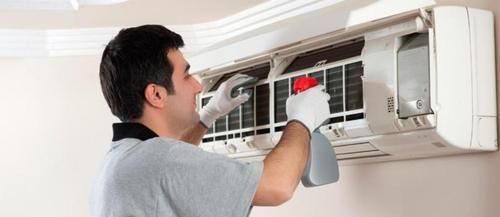Air conditioning has become an essential part of modern living, providing comfort and maintaining air quality in our homes, offices, and vehicles. To ensure your air conditioner runs efficiently and effectively, it's important to understand the role of refrigerant gas, commonly referred to as "aircon gas." One frequently asked question is: how often should you aircon gas top up? Let’s delve into this topic to help you maintain a cool and comfortable environment.
Understanding Aircon Gas
Aircon gas, or refrigerant, is a vital component in the cooling process of air conditioners. It absorbs heat from the indoor air and releases it outside, thereby cooling your indoor space. There are different types of refrigerants, with R-22 and R-410A being the most common in older and newer systems, respectively.
Do You Need to Top Up Aircon Gas Regularly?
Contrary to a common misconception, aircon gas does not get "used up" like fuel in a car. Under normal conditions, the refrigerant in your air conditioning system is in a closed loop, meaning it is continuously recycled within the system. Therefore, if your air conditioning unit is functioning properly, you should not need to top up the gas regularly.
When Should You Top Up Aircon Gas?
The need to top up your aircon gas typically arises from leaks within the system. Here are some signs that your air conditioning unit might need a refrigerant top-up:
- Reduced Cooling Efficiency: If your air conditioner is blowing warm or less cold air than usual, it might be due to low refrigerant levels.
- Longer Cooling Time: If your air conditioner takes a longer time to cool the room, it could indicate a refrigerant leak.
- Hissing or Bubbling Sounds: These sounds can indicate a refrigerant leak in the system.
- Ice Formation on the Evaporator Coil: Low refrigerant levels can cause the evaporator coil to freeze, leading to ice formation.
- High Electricity Bills: An air conditioning unit with low refrigerant levels will work harder to cool your space, resulting in higher electricity consumption.
Diagnosing and Fixing Refrigerant Leaks
If you notice any of the above signs, it is crucial to have your air conditioning system checked by a professional technician. They will:
- Inspect the System for Leaks: Technicians use specialized equipment to detect refrigerant leaks in the system.
- Repair the Leak: Once the leak is identified, it must be repaired to prevent further refrigerant loss.
- Recharge the System: After repairing the leak, the technician will recharge your air conditioning system with the appropriate type and amount of refrigerant.
Preventative Maintenance
Regular maintenance can help prevent refrigerant leaks and ensure your air conditioning system operates efficiently. Here are some tips for maintaining your air conditioning unit:
- Regular Inspections: Schedule regular inspections with a certified technician to check for potential issues, including refrigerant levels.
- Clean or Replace Filters: Dirty filters can obstruct airflow and reduce cooling efficiency. Clean or replace filters as recommended by the manufacturer.
- Clean the Coils: Dirty coils can affect the system's ability to transfer heat. Ensure the evaporator and condenser coils are clean.
- Check for Obstructions: Ensure there are no obstructions around the outdoor unit that could impede airflow.
Conclusion
In summary, under normal circumstances, you should not need to aircon gas top up regularly. However, if you notice signs of reduced cooling efficiency, unusual noises, or increased energy bills, it might indicate a refrigerant leak. Promptly addressing such issues by consulting a professional technician can prevent further damage and ensure your air conditioning system operates efficiently. Regular maintenance is key to keeping your system in good working order and avoiding the need for frequent refrigerant top-ups. Stay cool and comfortable by taking good care of your air conditioning unit!





Comments